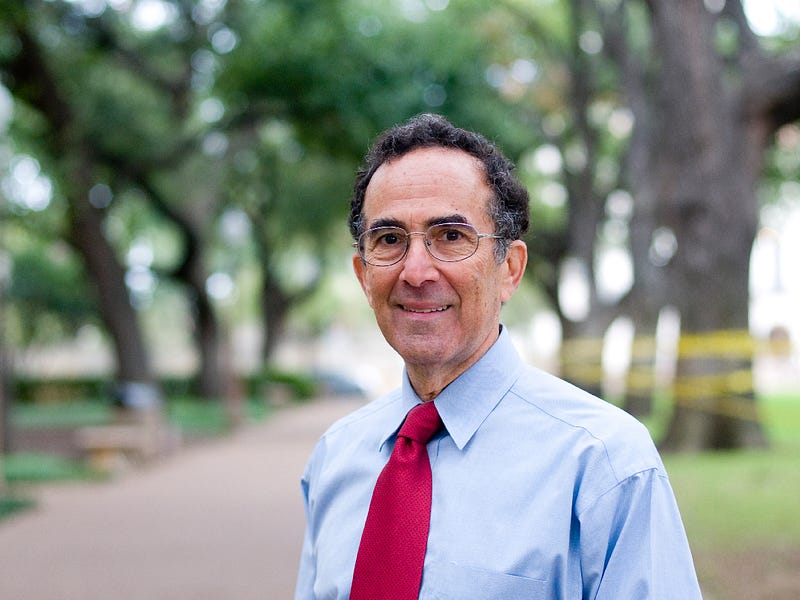Americans: Living Rich, Retiring Poor
What you will need to retire, and why so many in the U.S. are financially unprepared for the future
By Adrienne Dawson

“I’d like to start off with the good news — and this is about the only good news today,” Texas McCombs Professor Michael Granof said in a 2014 lecture. “The good news is that you’re going to be living longer than your parents or your grandparents.”
“The question is, can you afford to live longer? For most Americans, the answer is no.” — Michael Granof
“When looking at the issues of retirement, we have to take a holistic view,” explained Granof. Retirement includes various sources of wealth and income, from savings to pensions to social security. “But in fact,” he said, “the problems go considerably beyond that. They involve trends in health care, the debt and deficits of our governments at all levels, and indeed — most importantly — the overall factors affecting the U.S. economy.”

The $775,000 Question
In a 2013 survey that asked what amount of savings people think they will need for retirement, half of respondents said $499,999 or less (and 8 percent didn’t know). The actual amount of money working Americans will need to retire is much higher than that, and Granof provided the following example:
You and your spouse each earn $50,000, making a household income of $100,000:
- You expect to retire at age 65 and live for another 25 years.
- You expect to need $75,000 per year upon retirement for your total household expenses.
- You expect to earn a real rate of return on your investments of 1.5 percent.
- You and your spouse will receive $37,578 in Social Security, combined.
- Upon retirement, you will need to have saved $775,000.
Households earning the median income of $50,000 would need to have saved about $530,000 by retirement (depending on anticipated Social Security benefits) — still higher than the amount many Americans think they’ll need, and much higher than what most people have available in savings.
“On average, Americans’ retirement accounts, if they have them, are woefully inadequate.” — Michael Granof
According to the Census Bureau, married households in 2011 over the age of 65 had a median retirement account value of $55,000, which includes both IRAs and 401(k) plans. Another study found that workers in their 60s making $50,000 have a median savings of $85,486. That’s slightly better, but still a far cry from the amount they need for a secure retirement.
And that’s for those who have retirement accounts. In 2008, among all private sector workers, more than half did not participate in a retirement plan. Of those who do contribute to an employer-sponsored 401(k) plan, less than 10 percent contribute the maximum amount, and more than half do not take advantage of their employer’s match.
Unfunded Obligations
The bad news isn’t just about individual saving rates, said Granof, as most pensions operated by state and local governments are underfunded. “What’s much worse with respect to cities and states is unfunded liabilities for health care,” he says. “[Governments] have not funded their health care obligations. … They’re on a pay-as-you-go basis. They have not put aside any money to fund health care … for their retirees.”
On a national level, the outlook is just as dire. “Social Security [has] started to bring in less than it pays out. … According to current projections, in 2033, that’s when the Social Security trust fund will be exhausted.”
“ That trust fund contains investments in U.S. government bonds and securities. So, from the standpoint of the U.S. government consolidated, there’s no trust fund at all.”
Medicare faces a similar problem and is projected to run out by 2026.
Can Social Security Be Secure?
Granof is not encouraged with prospects for saving Social Security. Possible reforms include:
- Increasing the retirement age
- Switching to chain-weighted consumer price index
- Reducing benefits for high earners
- Increasing the number of years over which average earnings are calculated
- Increasing the cap on wages (with or without an increase in benefits)
“I’m not advocating cuts to Social Security,” he said, “[but] you can’t expect in the near future, owing to political pressures, any great increases [either].” Granof expressed some hope in an improving economy that could solve some of the shortfall issues. In the meantime, how much are you socking away?
About this Post
Share:


